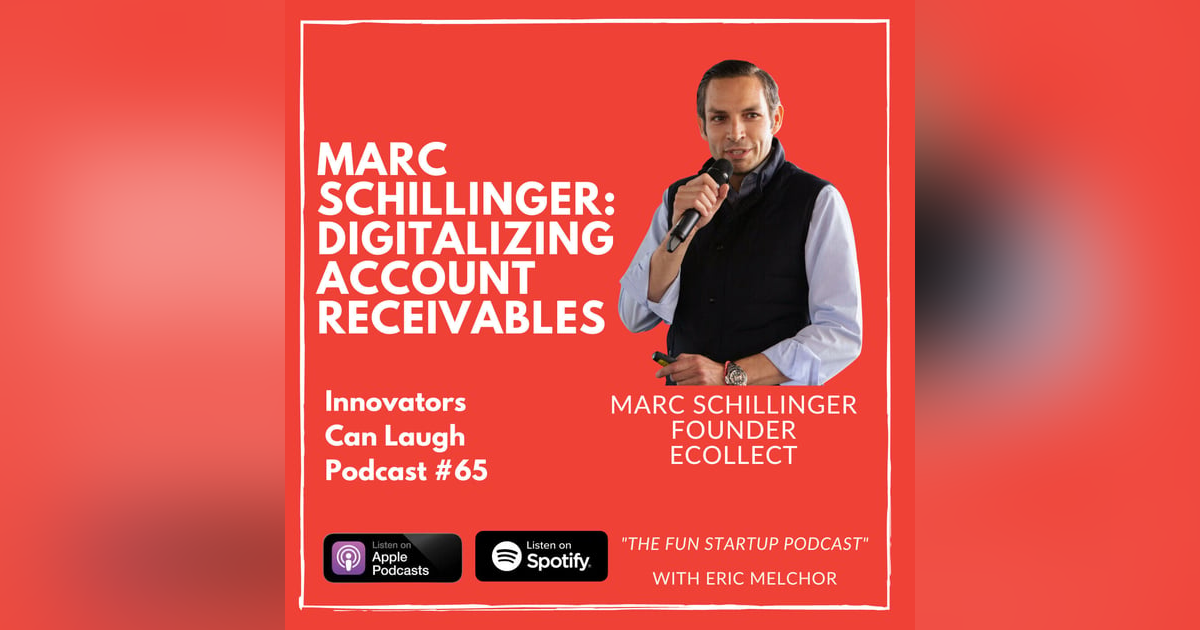Marc Schillinger: Digitalizing Account Receivables

Remember when those guys who had slicked back hair and carried a bat paid you a visit about a debt you owed? You know debt collectors.
Well times have changed and March Schillinger, founder of eCollect is transforming the way debt collection and account receivables takes place. eCollect is a fully digitalised receivables management FinTech startup with best-in-class AI and machine learning technology. They’re currently operating in several European countries, provide services for more than 13 languages, and are approaching 10 million in ARR. This is a very fun conversation with Marc as we learn about eCollect and Marc’s passion for Michael Jordan as I believe he’s Jordan’s number 1 fan. Listen to his story to see why.
Highlights:
0:32 – who is Marc Schillinger?
1:42 – what has changed in the field of debt collection?
2:55 – are there differences in the methods in how people pay their debts by country?
4:34 – are you servicing specific types of industries?
5:45 – what are some of the main tactics you use to grow eCollect?
7:40 – how are you managing workers who are in three separate countries?
9:30 – what is your projected revenue for 2022?
9:45 – what do you wish you had known before you started eCollect?
10:55 – what is one hire you made that really made a difference in the company?
13:30 – what changes do you anticipate five years from now in this industry?
16:32 – is there something else that clients get excited about when they discover eCollect?
19:50 – what was one of the hardest obstacles you had to overcome in growing eCollect?
21:50 – does corn belong on pizza?
22:30 - a favorite tv show you can watch again and again?
24:55 – what is something that most people don’t know about you?
Be sure to stick around for the Innovators Can Laugh segment! You won’t want to miss Marc’s hilarious answers!
Do you wish to connect with our special guest?
Visit Marc’s website: ecollect.net
Tune in to every conversation about exciting European Startups and Innovators on Apple Podcasts, Spotify, and Amazon! Leave a rating and review so we can keep making amazing interviews!
Listening on a desktop & can’t see the links? Just search for Innovators Can Laugh in your favorite podcast player.
Connect with Eric:
Visit his website: https://innovatorscanlaugh.com
For the Innovators Can Laugh newsletter in your inbox every week, subscribe at https://innovatorscanlaugh.substack.com
Past Guests:
----
Past guests on Innovators Can Laugh include Yannik Veys, Ovi Negrean, Arnaud Belinga, Csaba Zajdó, Dagobert Renouf, Andrei Zinkevich, Viktorija Cijunskyte, Lukas Kaminskis, Pija Indriunaite, Monika Paule, PhD, Vytautas Zabulis, Leon van der Laan, Ieva Vaitkevičiūtė.
-----
Additional episodes you might enjoy:
#55 Yannik Veys - From creating the Uber for service professionals to growing Hypefury
#53 Tzvete Doncheva - Overcoming barriers to get into a VC with Tzvete Doncheva
#50 Vidmantas Šiugždinis - Personalized Approach to Employee Benefits with MELP











